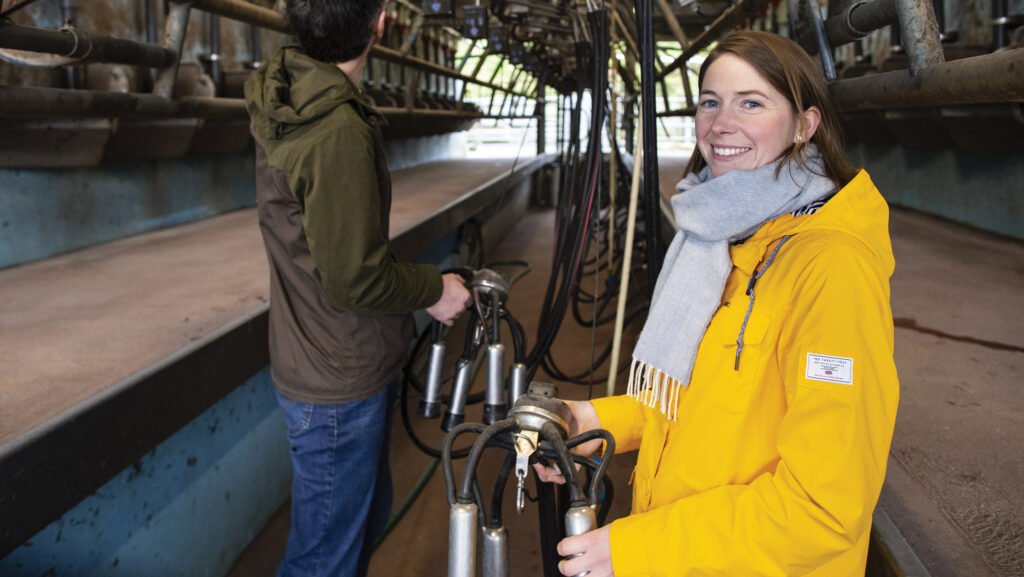Farmer Focus: Hoping New Zealand genetics do the business
 Gillian O'Sullivan © Cathal Noonan
Gillian O'Sullivan © Cathal Noonan There was a sudden scramble to get up to speed.
The list of weather-delayed tasks was immense: slurry tanks were full and sheds needed cleaning out as the stock were turned out. They bucked through electric fencing as if they had never encountered high-tensile wire before.
Vaccinating, weaning and reseeding all rapidly competed for time on the high-priority list. Everything must be done all together, all at once, now!
See also: How to reduce mastitis ahead of spring calving
In fact, the highest priority is breeding, as the farm won’t move forward without that. Compact spring calving is our bread and butter, and some hours inside poring over cow selection for sexed semen is imperative.
In February, we chose a New Zealand Jersey bull of very high breeding worth. He is ranked top of the New Zealand sire list.
For us, the non-negotiables in bull selection are good milk solids production, good fertility figures and strong traits for somatic cell count and udder strength.
We farm on the side of a steep hill, so bigger-framed cows struggle on the terrain. We like compact cows with capacity, and crossbreeding has worked well here.
Black-and-white bulls we have currently are Backdrop and Bellamys Grant from LIC.
On the cow selection side, we are using sexed semen, so the cows must be in perfect condition, have no mastitis, metritis or significant condition loss since calving.
They must be early calved and cycling regularly, with good performance credentials backing them. We do not breed cows over fifth lactation to sexed semen.
All of the replacements get sexed semen, and only 25% of the cow herd. Everything else will receive a high-index beef bull.
We use a long-gestation Limousin for the first week, and then a Hereford, and finish with a short-gestation Hereford. We use an Angus bull for heifer repeats.
We are currently toying with going 100% artificial insemination and dropping the stock bull, as it’s a lot of hassle for just five weeks.
A high level of motivation is required for the breeding season to go well, and this can be hard to muster after the work levels of a difficult spring. It’s time to caffeine up and get going again.

